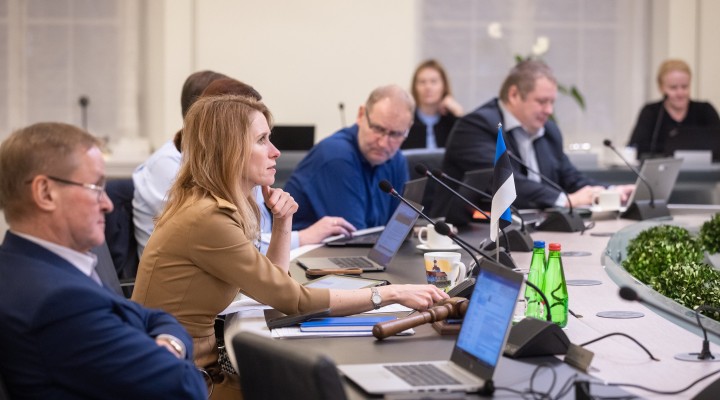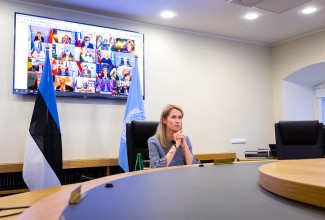“The green transition can only be the green transition of people. The most important thing is to ensure that our people are protected on this journey and that no one is left behind. Together, we must look for ways to mitigate the effects of change on the vulnerable. We support the goal of the European Union to direct part of the revenue from emissions trading to mitigate the social consequences,” said Prime Minister Kaja Kallas. “In the long run, we are trying to create a new economic model that would allow us to maintain and continue economic growth without destroying nature.”
With the creation of the social fund for climate action, the European Commission wants to offer Member States the opportunity to channel 25% of ETS revenues into temporary support measures and investments in the energy efficiency of buildings, new heating and cooling systems, and clean vehicles and low-cost public transport. In accordance with the proposal, the fund would provide 72.2 billion euros to Member States for 2025–2032. The share of Estonia in this could be about 207 million euros. At the same time, negotiations are still under way on changing the ETS and the sources of revenue for the EU budget, which is linked to the creation of the fund.
The Green Policy Steering Committee also reviewed the Sustainable Shipping Initiative today. The initiative aims to increase the use of renewable and low-carbon fuels in EU maritime transport. Estonia sees a number of serious risks in the initiative in its current form and considers it important to ensure sufficient time to develop new technologies and make the necessary investments.
According to Erki Savisaar, Minister of the Environment, there are clauses in the climate package on which Estonia has a different position in the negotiations, but there are also proposals with which we agree in principle. “In the case of the Sustainable Shipping Initiative, we need to develop viable technologies before making major changes. With regard to the goal of energy efficiency, we must ensure that the amounts invested in the renovation of buildings and heating and cooling systems are sufficient to bring about change,” said Erki Savisaar.
The Green Policy Steering Committee also discussed the views of Estonia on the proposal for a Renewable Energy Directive, which envisages raising the renewable energy target of the European Union to 40% in close cooperation with Member States, and on the energy efficiency target of the European Union of collectively reducing energy consumption by at least 9% by 2030 compared to 2020. Increasing the share of renewable energy and more sustainable consumption will help to combat future high fossil fuel prices. The proposed changes to the taxation of energy products, which would help promote cleaner technologies and remove the competitive advantage of fossil fuels, were also discussed.
Taavi Aas, Minister of Economic Affairs and Infrastructure, said that renewable energy production in Estonia must be increased rapidly and that energy consumption must become more efficient. “Although we have significantly reduced our carbon footprint in Estonia, we need to make further efforts. With the climate package, we are setting a common goal for the whole of the European Union, but it is important that countries keep a degree of flexibility in choosing which tools are the most most suitable to achieve the goal, given their specific characteristics. We need to work to make energy production, buildings, industry, and transport more sustainable, and to guide consumers to make more informed choices.”
The steering committee also decided to support the proposal of the European Commission for a border measure that would oblige third-country operators who import their products into the EU to pay for the carbon footprint of production. The border measure is intended to cover imports of steel, aluminium, cement, fertilisers, and electricity.
Some of the positions on the “Fit for 55” draft were approved by the government last week. The Riigikogu will discuss them next. Estonia follows these positions in the negotiations in the EU Council.
Background
The Green Policy Steering Committee of the government is chaired by the Prime Minister, and its permanent members are the Minister of Enterprise and Information Technology, the Minister of Education and Research, the Minister of the Environment, the Minister of Rural Affairs, the Minister of Economic Affairs and Infrastructure, the Minister of Finance, the Minister of Public Administration, and the Minister for Foreign Affairs. The aim of the committee is to coordinate the implementation of green policy in Estonia in order to promote sustainable economic growth. The committee reviews government decisions before meetings of the government, and as a result, ministers are better able to coordinate a number of issues and tasks in their area of government. A group of experts has also been set up within the steering committee, whose task is to make proposals to the government committee, on the basis of which the government will prepare an action plan for the successful implementation of green policy in Estonia.


